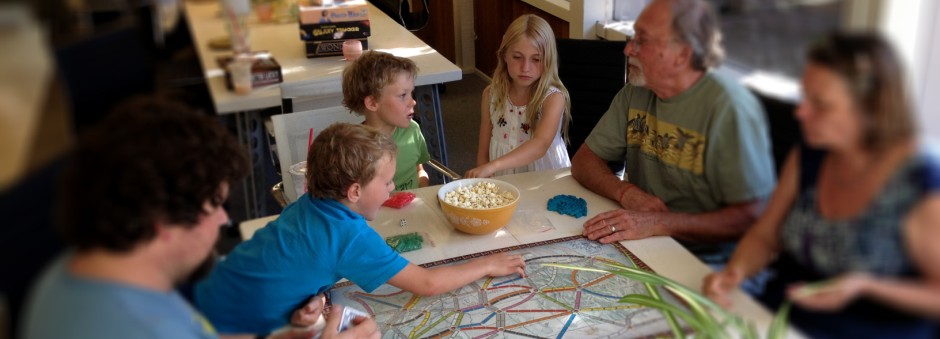Last week we talked about flocking behaviors and the hive mentality. This week we were on to the prisoner’s dilemma and game theory. How we act and the elements at play in controlling our behaviors make for a rousing conversation. Here are a few highlights:
Split or steal? What would you do? The British game show, Golden Balls, took a very simple concept and turned it into a test of humanity by challenging you to trust a stranger. If both parties vote to split, you each get half the pot. If one party votes to split and the other to steal, all the money goes to the stealer. But if you both steal, neither of you gets anything. You must negotiate and win each other’s trust in order to succeed, but the game often ends in deception and betrayal. (Radiolab did a fabulous job of telling this story while Freakonomics Radio explores our propensity for spite.)
A game of Pong. Can a group of autonomous individuals work together toward a common goal with no central leadership? Loren Carpenter presented an experiment at SIGGRAPH 1991 by projecting a game of Pong, without instructions, in front of an unsuspecting audience. Surprisingly quickly, the group figured it out and organized itself to play the game. It’s exciting to watch the enthusiasm grow as the crowd works together.
These two experiments highlight the best and the worst in human nature and demonstrate that it is often the environment that determines which way the pendulum will swing. Take a group and encourage them to battle it out for cash; greed and selfishness will appear. Take the same group and set them up to play toward a common goal; cooperation and camaraderie are the order of the day.
Which leads me to wonder: If culture plays such a critical role in moderating our actions, how does our current economic system affect society? Does capitalism alone encourage selfishness and greed or can we overlay a set of values that will inspire cooperation and innovation toward a common goal? I’m looking forward to reading A Farewell to Alms: A Brief Economic History of the World by Gregory Clark (another Coffee Social recommendation) and continuing to explore this age-old question.
Written and photographed by Natasha Juliana. Edited by Linda Jay.
Curious about Coffee Social? Join us Tuesdays at 10 AM.


